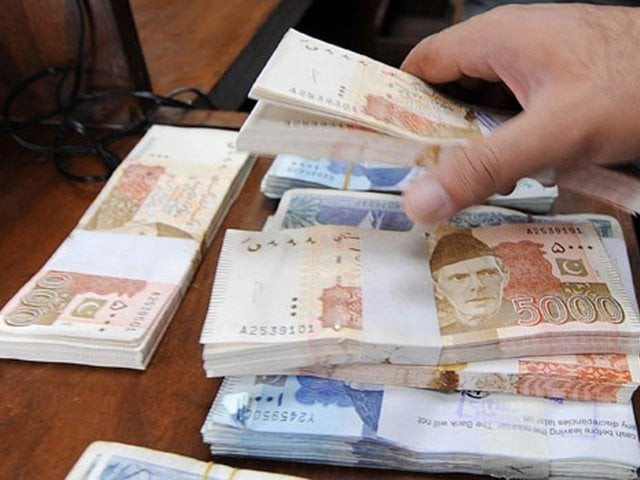Coalition government: a challenge or opportunity?
All parties must arrive at consensus on undertaking governance reforms

Government’s efforts to approach the International Monetary Fund (IMF) will lead to further depreciation of the currency. There does not seem any ray of hope in the short run to deal with the economic crisis.
PHOTO:FILE
Currency had been on a free fall for some time and was depreciating with the passage of time. It has only shown a glimpse of improvement in recent days.
Government’s efforts to approach the International Monetary Fund (IMF) will lead to further depreciation of the currency. There does not seem any ray of hope in the short run to deal with the economic crisis.
Although caretaker Finance Minister Dr Shamshad Akhtar managed to secure a $2-billion loan from China to bring some stability, problems are more serious.
Prior to elections, almost all political surveys indicated that no party would be able to secure a deciding lead, meaning different parties would be leading in different provinces. Nationally, no one would be in a position to form the government independently. Most probably, there would be a coalition government and it would be the only viable option.
Approaching IMF the only option
A study of the Sustainable Development Policy Institute (SDPI) reinforces the argument.
According to the study, Pakistan Tehreek-e-Insaf (PTI) would lead at the national level with a probability to get 29% votes. It would be followed by the Pakistan Muslim League-Nawaz (PML-N) with expected 25% votes and Pakistan Peoples Party (PPP) with 20% votes.
SDPI pointed out that there were 13% undecided voters, who would probably change the results altogether. This represents swing votes which move according to the situation and performance of parties.
Results of the 2018 elections vindicated the forecasts of all surveys that no party would be able to secure absolute majority to form an independent government.
PTI has emerged as the leading party with 116 National Assembly seats. PML-N is the second largest party with 64 seats, followed by PPP with 43 seats. MMA secured 12 seats, MQM-P 6 and PML-Q 5. The forecast about the swing vote proved true and Pakistan avoided a hung parliament.
However, the current status of parties indicates the formation of a coalition government with a strong opposition.
Size of Pakistan’s economy is $313.13 billion, says SBP
Taking opposition along
The strong opposition will make it difficult for the incoming government to move forward, especially in the backdrop of economic crisis. The government will have little room to take stringent decisions or implement economic reforms without taking the opposition into confidence.
PTI is committed to institutional reforms and accountability. It believes in fair and open governance. It would like to repeat its experience of Khyber-Pakhtunkhwa and change it according to needs of the country.
It has indicated that it will increase tax collection by introducing new measures and may avoid any amnesty scheme. It is also of the view that the PML-N did not handle CPEC properly and it will try to introduce new ways of managing the project.
IMF, finance ministry way off on Pakistan’s economic misery
PTI, being the leading party, is forging coalition with different parties. A coalition government will be a mix of parties which may have divergent economic and reform agendas.
There would be many bones of contention among the coalition partners and the opposition. As the parties have their strongholds in different regions and sub-regions, each party would like to have major focus on their respective constituencies.
In this scenario, the economic and reform agenda will be lost somewhere. As most of the leading parties have divergent views on managing the economy, the coalition government will face difficulties in interacting and negotiating with international lenders like the IMF, World Bank, ADB, etc.
The situation requires the PTI to develop working relationship with the opposition parties for meaningful governance. It would be a daunting task to take the opposition along on the path of reforms and for smoothly running parliament.
Bridging the gap
In this context, an independent institute can play a positive role and bridge the gap among political parties in order to develop people-centric and country-friendly economic agenda and structure of reforms.
Being aware of ground realities last year, the SDPI made an effort to gather all political parties on one platform to frame the economic agenda and reform plan. All parties were invited to present their economic visions and missions.
On the basis of political visions and ground realities, it developed an economic and reform agenda. All political parties agreed to the agenda and showed willingness to be part of the implementation process.
Major thrust of the agenda is on enhancing revenues and reducing the fiscal and current account deficits. Main instruments of success were cited as reforms in the FBR, trade policy, entrepreneurship, innovation, agriculture development and youth engagement.
It was also suggested that the government should introduce fair and open governance to enhance transparency and accountability. It would be a major step for the effectiveness of reforms and to achieve desired results.
Now the question is whether the political parties will arrive at a consensus for undertaking economic reforms. There is a good number of examples from around the world where opponents have come together to implement critical reforms.
Germany is a most recent example. Political parties there, with divergent views and manifestos, designed a unique model of coalition government.
Pakistan’s political parties can learn from this model. However, for that they must show political maturity.
The writer is the Head of Centre for Future Policy and Head of Research Coordination Unit, Sustainable Development Policy Institute
Published in The Express Tribune, August 13th, 2018.
Like Business on Facebook, follow @TribuneBiz on Twitter to stay informed and join in the conversation.



















COMMENTS
Comments are moderated and generally will be posted if they are on-topic and not abusive.
For more information, please see our Comments FAQ